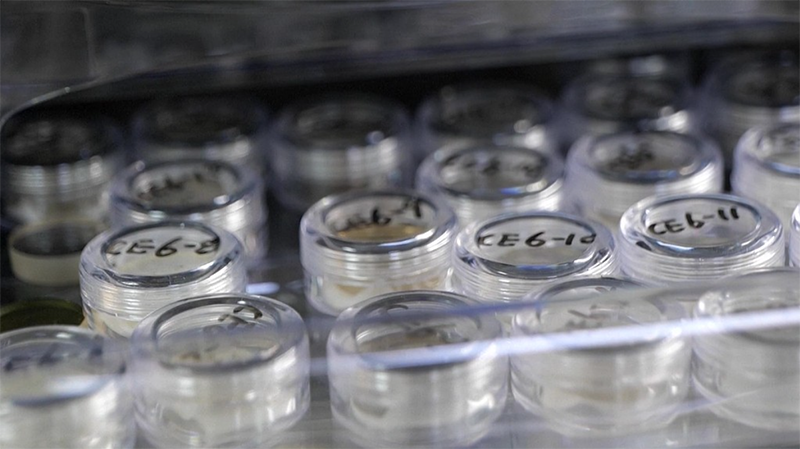
Lunar samples from the Chang'e-6 mission. /VCG
The China National Space Administration announced on Thursday that it would allow scientists from the United States, Japan, France, Germany, Britain and Pakistan to analyze rocks retrieved from the moon – Beijing's latest move to expand the international influence of its lunar exploration program.
The announcement underscores that China-U.S. cooperation in space has not entirely ceased, despite ongoing tensions between the two countries over tariffs.
Two U.S. universities that receive NASA funding – Brown University and the State University of New York at Stony Brook – are among the seven institutions authorized to borrow lunar samples China retrieved in 2020.
With its Chang'e-5 lunar mission in 2020, China became the third country to collect rocks from the lunar surface, following the Soviet Union and the United States.
China's subsequent Chang'e-6 mission, completed in June last year, made it the first country to bring back rocks from the far side of the moon, which faces away from Earth.
"It seems the United States is quite closed off now despite being open in the past, while we were closed off in the past and are now open; this is because of the increase in our nation's overall strength and consequent rise in self-confidence," Wu Weiren, chief designer of the Chinese Lunar Exploration Program, told Reuters in an interview on Wednesday, adding that growing U.S. "isolationism" would not help its space ambitions.
"We currently recognize several key areas of international cooperation. The first is at the technical level. But what does that mean? It means working together to develop and implement shared plans. Technological breakthroughs are essential, particularly to tackle the harsh conditions of the lunar South Pole, including challenges related to lighting, power supply and extreme temperature variations. These obstacles must be overcome collaboratively," Wu said in an interview with CGTN.
"We are working with the European Space Agency and countries in South America like Argentina. Looking ahead, I expect more emerging nations to join us in these cooperative efforts," he said.
(With input from Reuters)





